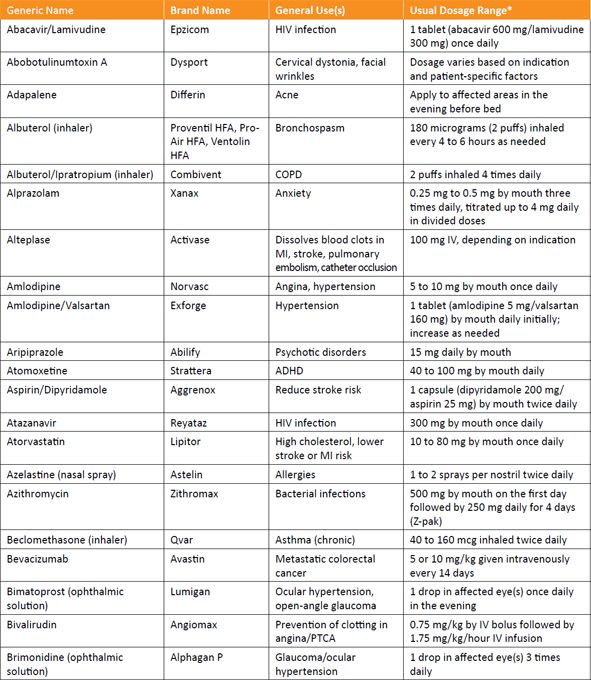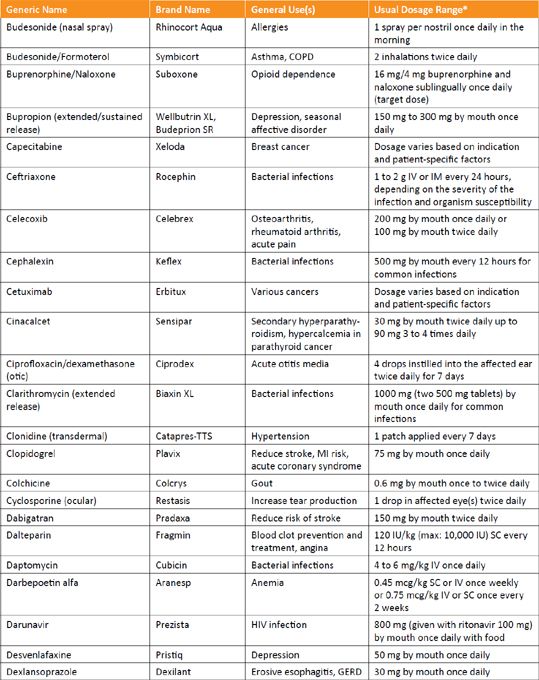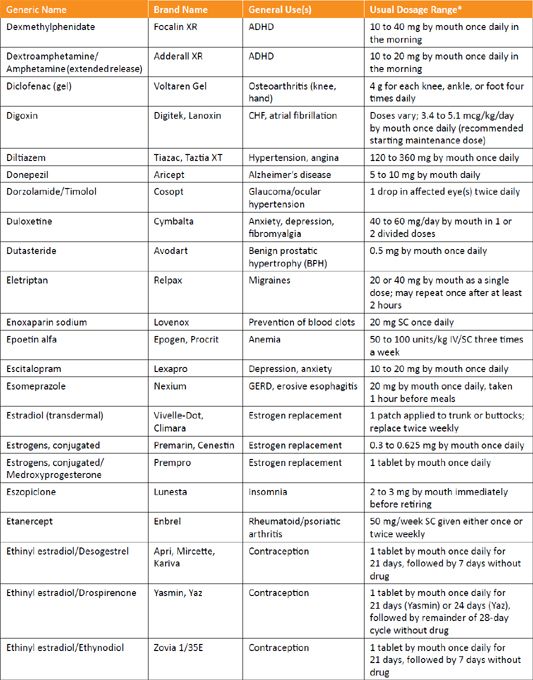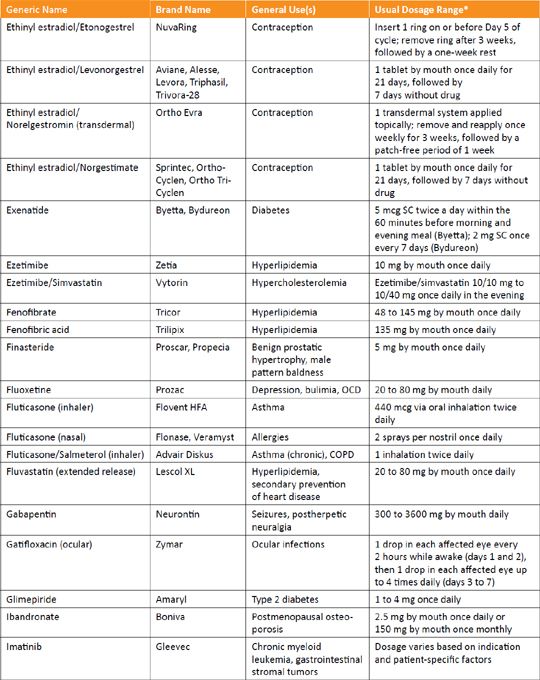Common adverse effects: dizziness, sleepiness, changes in heart rate or breathing, confusion, drowsiness, nausea, dry mouth, insomnia, nervousness, weight changes, extrapyramidal symptoms, changes in blood pressure, and restlessness.
Common adverse effects: tremor, fast heart rate, sore throat, and oral fungal infection or throat irritation.
Common adverse effects: headache, dizziness, rash, and infusion-related reactions.
Common adverse effects: headache, dizziness, nausea, changes in vaginal bleeding patterns, fluid retention, and changes in mood or appetite.
Common adverse effects: dizziness, cough, low blood pressure, swelling of the feet or ankles, slow heart rate, drowsiness, and changes in potassium, sodium, or other electrolyte levels.
Common adverse effects: flatulence, nausea, muscle pain, and upset stomach.
Common adverse effect: bleeding.
Common adverse effects: changes in libido, upset stomach, headache, dry mouth, and flushing.
C. Drug allergies occur when the body’s immune system reacts to a drug. Drug allergies can cause minor skin reactions, such as rash or hives, or a more serious reaction such as swelling of the throat and difficulty breathing (anaphylaxis). As detailed in Chapter 6, drug allergy information should be verified and updated at each new prescription or refill.
D. A contraindication (also called therapeutic contraindication or warning) is a reason why a specific drug either cannot be used or should be used only with caution in a specific patient population or in patients with an existing condition. Contraindications are included in the prescribing information for every approved drug.
E. Pharmacy technicians should stay up to date on the most frequent uses, warnings, and adverse effects of commonly used medications.
III. Commonly Used Medications: Selected from Community and Hospital Settings
Stay updated, free articles. Join our Telegram channel

Full access? Get Clinical Tree






